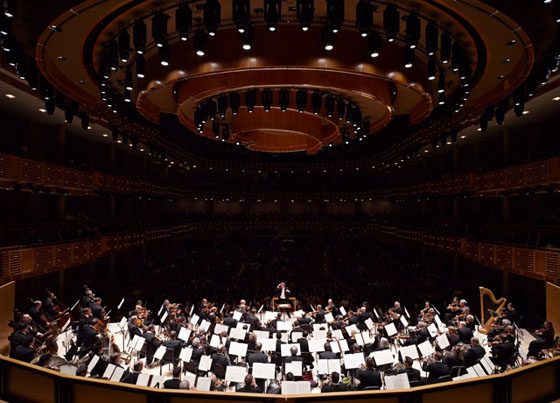
Cleveland Residency Survives Close Call With Strike
It was a close call, but the Cleveland Orchestra will be coming to Miami this Friday for its residency, after a walkout Monday threatened to scuttle a feature of seasonal musical life that has helped fill the gap for South Floridians who still miss a full-time major orchestra in their midst. The group had actually been on strike for a day before the agreement was reached early yesterday morning, and its brief residency at Indiana University was postponed and will have to be rescheduled. But with musicians agreeing to a wage freeze and higher premiums for their health plans, the major issues of contention were resolved and the music can go on.
The program for the first concerts, which will feature violinist Leila Josefowicz in the Violin Concerto of Thomas Adès, has been getting very good reviews, and reports indicate ticket sales for the residency have been strong. It’ll be a good chance to hear some challenging new music played by a major soloist, and then glory in the sound of a major orchestra playing core Romantic repertoire: the Brahms Second Symphony and Strauss’ Don Juan.
Those kinds of works can’t be done by anything but a big orchestra, and keeping one going is an expensive proposition. The median compensation for the orchestra last year was $142,000, which for most of us is very nice money indeed. That’s the kind of salary that has to be paid if orchestras are going to be able to compete on a global level, but it’s also a lot more money than most Americans will ever make in a year.
In difficult economic times like these, keeping perspective is harder than normal. If we look at other goods and services that are crucial to our lives, many of them are provided by people making a lot less, which immediately makes the struggling soul consider arts organizations with a gimlet eye and consider them luxuries.
On the other hand, in the world of finance, bonuses for the average hardworking employee at Goldman Sachs last year were around $700,000 apiece, and that’s just the average. The most productive workers received millions, which only goes to show that the people who are a vital part of the global financial system are paid well to keep it running.
I don’t consider the arts a luxury. I consider them an essential part of life, and when a great orchestra brings a new piece to life or revivifies an important work from the past, they make our shared human history come alive. Looked at that way, the money paid on keeping these messengers of our common life working is a bargain.
Again, these are tough times, and there’s probably not a lot of sympathy in many households for orchestra players who didn’t want to take a 5 percent pay cut from six-figure salaries. But I’m happy to see them coming back, and it’s precisely because the economic waters are so perilous that we need them, and groups like them, more than ever.